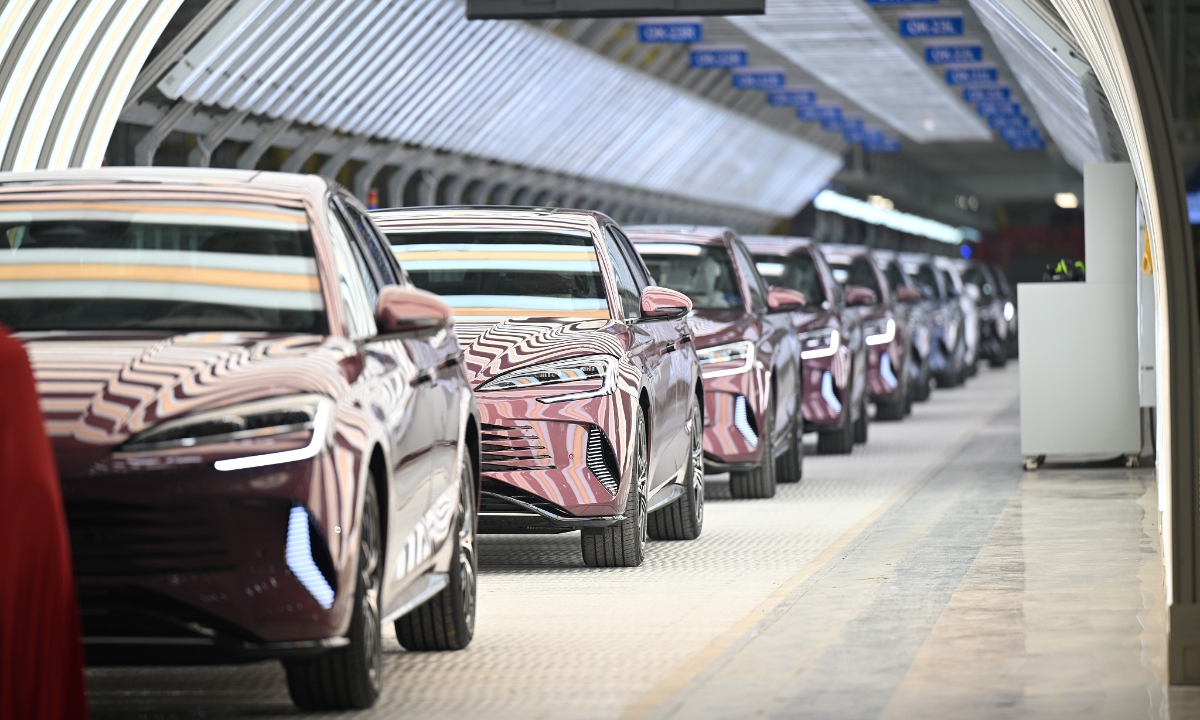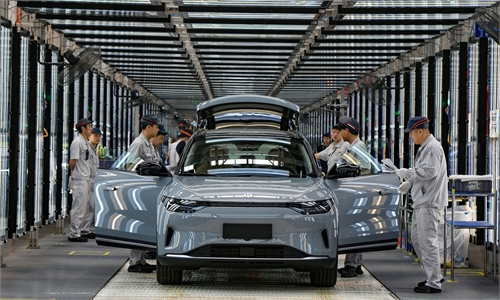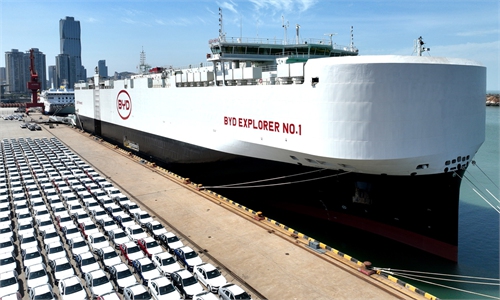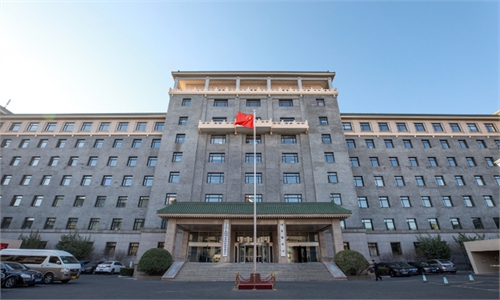EU levying extra tariffs to harm global auto industry, triggering tits-for-tats from China: German business group

EV Photo:VCG
The German Chamber of Commerce (GCC) in China released its 2024 Flash Survey on Monday, saying German companies operating in China have high expectations of their businesses in the Chinese market, and their optimism over the rebound of Chinese economy is returning.
Meanwhile, the leader of the GCC criticized the EU's levying extra tariffs on imports of Chinese electric vehicles (EVs), while emphasizing the determination and confidence of the German business community in advancing China-Germany economic and trade cooperation.
In response to questions from the Global Times about the EU's levying high tariffs on Chinese EVs at a press conference on Friday, the GCC noted that the extra tariffs will harm global automotive industry and may lead to a vicious cycle of tariff tits-for-tats.
"The EU's intended tariffs are not in favor of the industry, this is also what the industry community of the car manufacturing has clearly stated. Competition should be decided based on equal and fair treatment, and also on the innovativeness of the product itself., but not through ever increasing cycle of tariffs, which means tariffs always have the risk of triggering counter tariffs, and then it can spiral in the wrong direction," Clas Neumann, Chairperson of the Board of the GCC in East China, told the Global Times.
"We hope that all parties will come together to address the issue and find a solution, so the tariffs do not become a permanent measure," Neumann said.
"I would argue that the industry made quite clear statements that tariffs, as announced by the EU, will not increase the competitiveness of the automotive industry. We rather advocate for investing into industry competitiveness of the EU rather than trying to protect our industry with high tariffs," said Maximilian Butek, Executive Director & Board Member of the GCC in East China.
"The temporary tariffs will potentially apply to brands from other countries too because it's not specifically about Chinese companies; it's about cars purchased from China," Butek added.
The goal of implementing tariffs is unclear if the industry itself opposes them, citing dependence on market openness. Maintaining open market, including key markets like China, is beneficial for both sides, according to Butek.
Additionally, "it is inaccurate to describe Chinese exports to the EU as flooding the European market. The market share of Chinese EVs in Europe is still quite small, which provides ample room for positive negotiations rather than fostering tariffs at this point," Butek said.
The GCC said that the Chinese government's subsidy for EVs, mostly applied in the research and development phase, is "fair and open for all", which is not a major challenge for German companies.
The GCC expressed a strong willingness to encourage more Chinese companies to invest in Germany and in the EU.
"We may want more financial support in line with the global trade rules. The tariff issue should be openly discussed and resolved. From the industry perspective, the worst outcome is the tariffs dispute won't get addressed," Butek noted.
"German auto companies have long invested in China, operating multiple factories. Now, they are leveraging China's innovation in EV and autonomous driving technologies, beyond producing and selling cars," Neumann added.
"Recent surveys reveal that some German carmakers view their Chinese counterparts as technological front-runners, which means significant opportunities for cooperation between the two nations," Neumann said.
China has been Germany's largest trading partner for the past eight years. The trade and economic relations between China and Germany have been mutually beneficial, Neumann said.
The EU announced on Wednesday it will impose extra tariffs ranging from 17.4 percent to 38.1 percent on imports of Chinese EVs from next month. The additional tariffs will be imposed on three sampled Chinese automakers: 17.4 percent for BYD, 20 percent for Geely, and 38.1 percent for SAIC, while other EV manufacturers that were not featured in the investigation will face a 21-percent tariff.
German automakers including Mercedes-Benz, BMW and Volkswagen have all responded on Wednesday, criticizing the EU's decision.



